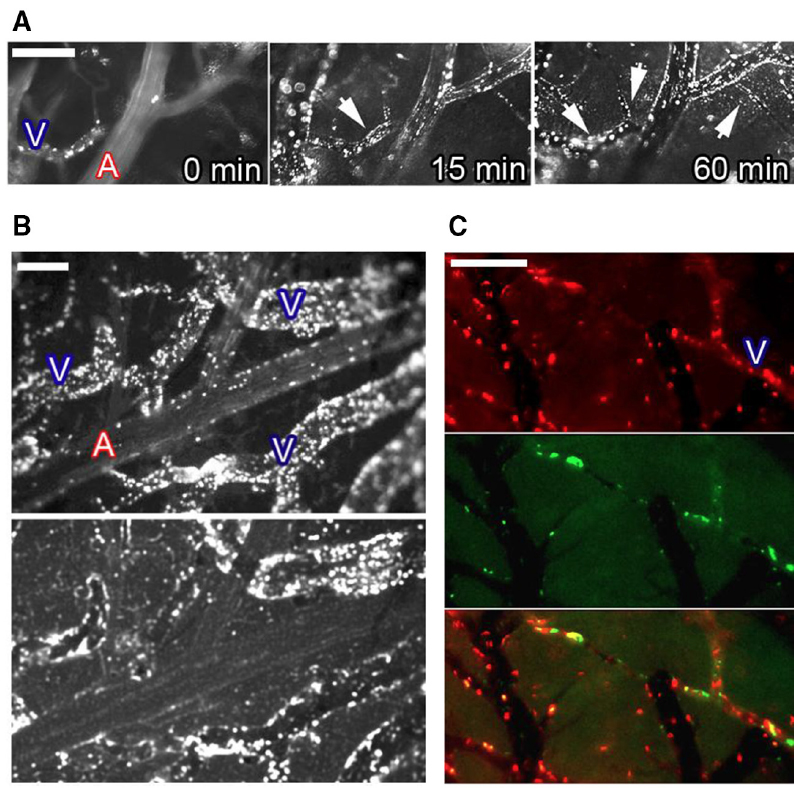Alteplase Reduces Downstream Microvascular Thrombosis and Improves the Benefit of Large Artery Recanalization in Stroke
Desilles JP, Loyau S, Syvannarath V, Gonzalez-Valcarcel J, Cantier M, Louedec L, Lapergue B, Amarenco P, Ajzenberg N, Jandrot-Perrus M, Michel JB, Ho-Tin-Noe B, Mazighi M

BACKGROUND AND PURPOSE: Downstream microvascular thrombosis (DMT) is known to be a contributing factor to incomplete reperfusion in acute ischemic stroke. The aim of this study was to determine the timing of DMT with intravital imaging and to test the hypothesis that intravenous alteplase infusion could reduce DMT in a transient middle cerebral artery occlusion (MCAO) rat stroke model.
METHODS: Rats were subjected to 60-minute transient MCAO. Alteplase (10 mg/kg) was administered 30 minutes after the beginning of MCAO. Real-time intravital fluorescence microscopy through a dura-sparing craniotomy was used to visualize circulating blood cells and fibrinogen. Cerebral microvessel patency was quantitatively evaluated by fluorescein isothiocyanate-dextran perfusion.
RESULTS: Immediately after MCAO, platelet and leukocyte accumulation were observed mostly in the venous compartment. Within 30 minutes after MCAO, microthrombi and parietal fibrin deposits were detected in postcapillary microvessels. Alteplase treatment significantly (P=0.006) reduced infarct volume and increased the percentage of perfused vessels during MCAO (P=0.02) compared with saline. Plasma levels of fibrinogen from alteplase-treated rats showed a rapid and profound hypofibrinogenemia. In vitro platelet aggregation demonstrated that alteplase reduced platelet aggregation (P=0.0001) and facilitated platelet disaggregation (P=0.001). These effects were reversible in the presence of exogenous fibrinogen.
CONCLUSIONS: Our data demonstrate that DMT is an early phenomenon initiated before recanalization. We further show that alteplase-dependent maintenance of downstream perfusion during MCAO improves acute ischemic stroke outcome through a fibrinogen-dependent platelet aggregation reduction. Our results indicate that early targeting of DMT represents a therapeutic strategy to improve the benefit of large artery recanalization in acute ischemic stroke.

